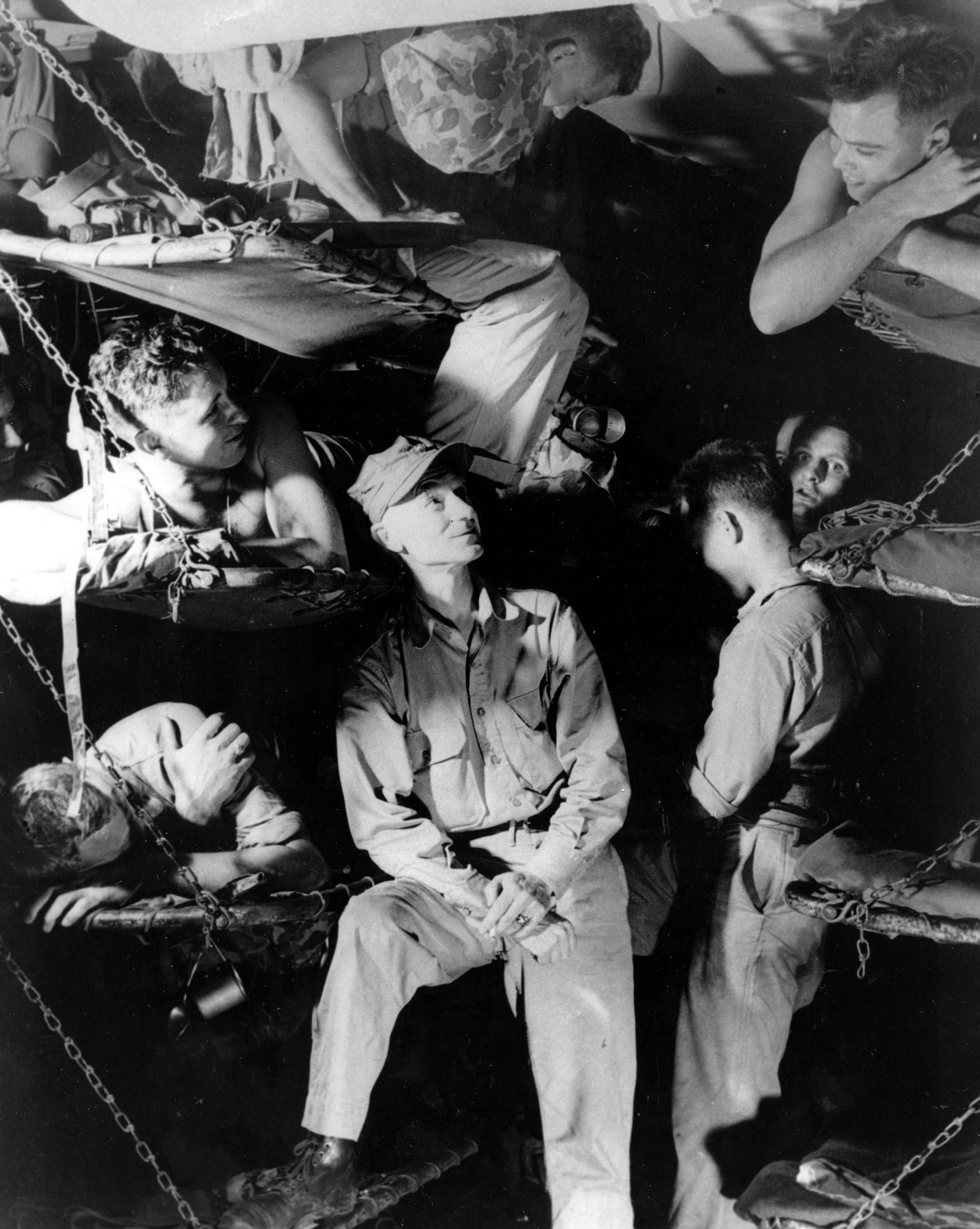
U.S. war correspondent Ernie Pyle, center, Ernie Pyle, center, talks with Marines on a Navy transport en route to Okinawa in 1945 during World War II
As World War II stretched into 1944, it became part of the daily ritual in our household on Cleveland’s west side to keep up with the war news in the town’s two newspapers, the Cleveland Press and the Cleveland News.
The afternoon dailies had the latest news from the European theater, stories about bombing raids on German cities and movements of infantry divisions. This was the stuff that drove the active imagination of a 10-year-old.
The Press’s most popular feature was the battlefield correspondence of Ernie Pyle, who wrote about the lives of ordinary soldiers and the hardships they endured.
One day in early January 1944, Pyle’s story (“The Death of Captain Waskow”) was there on page one, telling of the death of 25-year-old Capt. Henry Waskow. He was killed in Italy on December 14, 1943; it took several weeks for Pyle’s dispatch to reach his newspaper readers. It became a classic of war reporting.
Captain Waskow was a company commander who was beloved by his men. Pyle told how, under a full moon, his men “laid him on the ground in the shadow of a low stone wall.” Then his men came close and “looked into their dead captain’s face” and said things like, “I sure am sorry, sir.”
Tears rolled down my cheeks. It is a story I have read again and again. It has meant so much, I think, because it conveys the comradeship and loyalty that exists among fighting men. They are surrounded by death and violence, but Pyle always seemed to find in them an enduring spirit of humanity.


